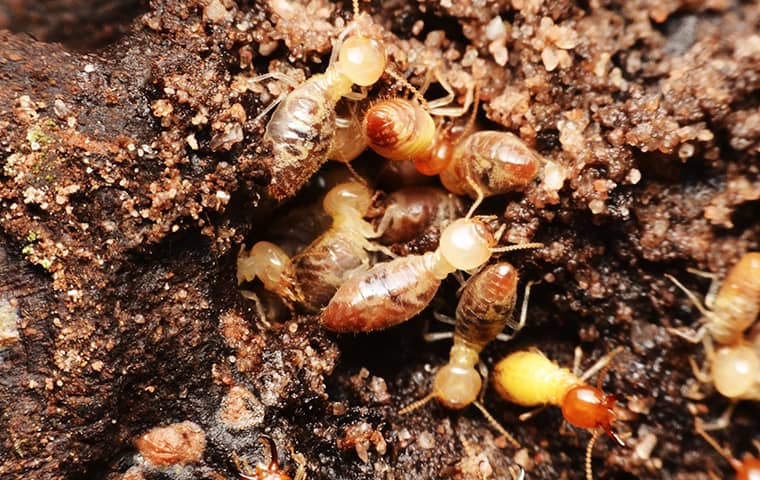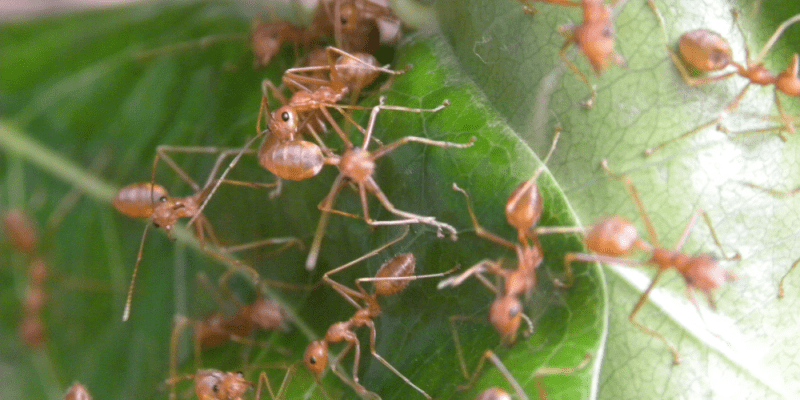Efficient Ant Control: Specialist Services to Get Rid Of Ant Infestations
Wiki Article
Environmental Influence of Bug Control: Harmonizing Effectiveness With Sustainability
The ecological effect of parasite control is a vital issue that calls for a fragile equilibrium between achieving efficiency in taking care of pests and guaranteeing sustainability of our environments. From the usage of unsafe chemicals that seep into our soil and water to the unintentional repercussions on non-target varieties, the effects of conventional insect control methods are far-ranging.Damaging Chemicals in Parasite Control
The usage of harmful chemicals in bug control positions significant environmental and health and wellness threats that warrant careful factor to consider and reduction techniques. Herbicides, chemicals, and pesticides are typically used to get rid of parasites, yet their prevalent application can cause unexpected repercussions. These chemicals can pollute soil, water sources, and the air, influencing not just the targeted parasites yet likewise helpful pests, wild animals, and people.
To resolve these threats, incorporated parasite monitoring (IPM) strategies are being advertised as an extra sustainable alternative. IPM involves a mix of methods such as biological control, environment adjustment, and the targeted use pesticides as a last resource (ant control springs nc). By adopting an all natural technique to pest control, we can lessen the environmental and wellness effects related to dangerous chemicals while successfully handling pest populations
Effect On Non-Target Types
Thinking about the unintentional repercussions of bug control techniques, the effect on non-target species is an important facet that requires detailed examination. While bug control actions aim to target certain pests, other organisms in the ecological community may be unintentionally affected. Non-target varieties, including advantageous bugs, birds, mammals, and also plants, can suffer direct or indirect harm from chemical applications or biological control methods.Insecticides developed to fight a specific insect bug might damage pollinators like or natural killers such as ladybugs. Biological control representatives, if not species-specific, can posture threats to unintentional targets, interfering with the ecological balance.
To alleviate the influence on non-target species, integrated insect administration (IPM) methods that stress an all natural strategy to pest control are suggested. These approaches focus on making use of environmentally pleasant techniques, minimizing damage to useful microorganisms while effectively managing pest populations. Carrying out extensive threat assessments and keeping an eye on the outcomes of parasite control initiatives are vital steps in safeguarding non-target varieties and promoting overall ecological community health and wellness.
Soil and Water Contamination
Unintended ecological repercussions of pest control approaches prolong beyond influencing non-target varieties, with considerable implications for dirt and water contamination. Pesticides, herbicides, and chemical plant foods utilized in pest control can seep into the dirt and contaminate groundwater, posturing a risk to both terrestrial and marine ecological communities. ant control hickory nc Soil contamination can interfere with the balance of microbes crucial for nutrition cycling and plant growth, causing lowered soil fertility and performance. These chemicals can linger in the environment for prolonged durations, accumulating in the soil and possibly entering the food chain.Water contamination is another crucial problem connected with insect control techniques. To minimize dirt and water contamination from pest control activities, incorporated pest management strategies that prioritize sustainability and reduce chemical inputs are important.
Air Air Pollution From Pesticide Usage
Direct exposure to air-borne pesticides throughout farming applications postures a considerable issue for air contamination control actions. Additionally, chemical drift, where pesticides are lugged by the wind to unplanned areas, can lead to the contamination of nearby ecosystems and water bodies.
Strategies for Sustainable Insect Control
In the world of farming techniques, implementing sustainable insect control methods is paramount for maintaining environmental equilibrium and guarding plant yields. Sustainable bug control emphasizes the usage of eco-friendly techniques to manage parasite populations properly while lessening harm to non-target microorganisms and environments. Integrated Insect Management (IPM) is an extensively adopted method that combines organic, cultural, physical, and chemical control methods to attain long-lasting insect monitoring options.One key approach in sustainable pest control is promoting biodiversity within agroecosystems. By boosting all-natural enemies of bugs, such as parasitoids and killers, farmers can reduce the requirement for artificial pesticides. Crop turning and diversity are additionally reliable methods to disrupt pest life cycles and develop less beneficial conditions for parasites to grow. Furthermore, using pest-resistant crop selections and using methods like trap cropping can help in reducing bug pressure without relying heavily on chemical interventions. Ultimately, by integrating these lasting bug control approaches, farmers can achieve a balance in between pest monitoring performance and ecological stewardship.
Verdict
Finally, the environmental effect of pest control approaches should be carefully thought about to stabilize efficiency with sustainability. Dangerous chemicals utilized in bug control can lead to soil and water contamination, air contamination, and injury non-target species - termite control services. It is essential to carry out lasting pest control techniques to decrease these negative effects on the atmosphere and advertise a much healthier environment for future generationsBy embracing an all natural method to pest control, we can decrease the environmental and wellness effects associated with dangerous chemicals while efficiently taking care of pest populations.

To reduce the air pollution created by pesticide use, it is important to take on integrated bug management techniques that focus on the use of non-chemical bug control approaches, such as crop turning, all-natural predators, and resistant plant selections. Sustainable bug control emphasizes the use of ecologically pleasant methods to handle pest populations properly while lessening injury to non-target organisms and ecosystems. Integrated Bug Monitoring (IPM) is a widely embraced strategy that combines biological, social, physical, and chemical control methods to achieve long-lasting parasite management options.
Report this wiki page